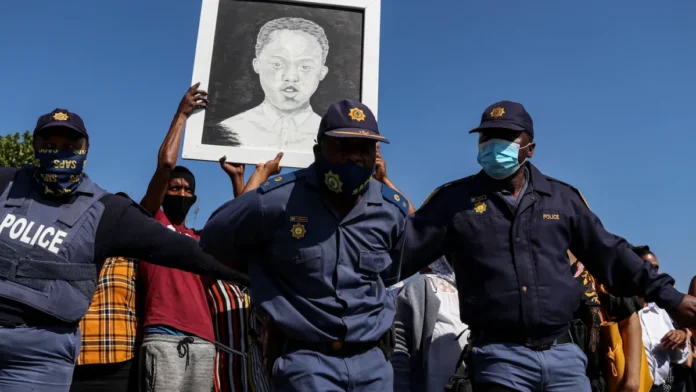Author: Eusebius McKaiser
Affiliation: Independent
Organization/Publisher: Foreign Policy
Date/Place: October 21, 2020/USA
Type of Literature: Argument
Word Count: 2043
Link:https://foreignpolicy.com/2020/10/21/in-south-africa-police-violence-isnt-black-and-white/
Keywords: South Africa, Johannesburg, Apartheid, Police Violence, Coloured People, Nathaniel Julies
Brief:
Mentioning the unjust killing of the 16-year-old Nathaniel Julies, who had Down Syndrome and was a member of the Coloured community in Johannesburg, the author provides an insight into the enduring legacies of colonialism, having its lasting effect of racism which is now led by South Africa’s Black-led government towards its Coloured population. The police especially are seen as racist and as the “henchmen” of the government. The experiences of the Black community during the Apartheid regime seem to some as extending and being transferred to the Coloured community, who now finds itself in the role of the victim. McKaiser, who is Coloured himself and refers to his personal experiences, explains how the Apartheid regime installed a race-based categorization system which is still predominant in South Africa. The “hierarchy of races” codified by White people in the law, deemed the White race as being pure and morally superior. “Political divide-and-rule tactics” and the prescription that only people from the same race can live in the same area, led to further separation of Coloured and Black communities and dissolved the solidarity among South Africans. The popular refrain the author mentions “During apartheid we were not White enough! Now we are not Black enough!” reveals political and economic marginalization, having the effect that Coloureds feel neglected and invisible in the current government. McKaiser concludes by recommending a deeper self-reflection of South Africans with colonialism and the Apartheid regime, especially regarding the impact of the damage on Coloured and Black communities. However, he fails to present a sustainable and encompassing solution for the current identity problem in the region.
By: Dilek Yücel, CIGA Senior Research Associate




